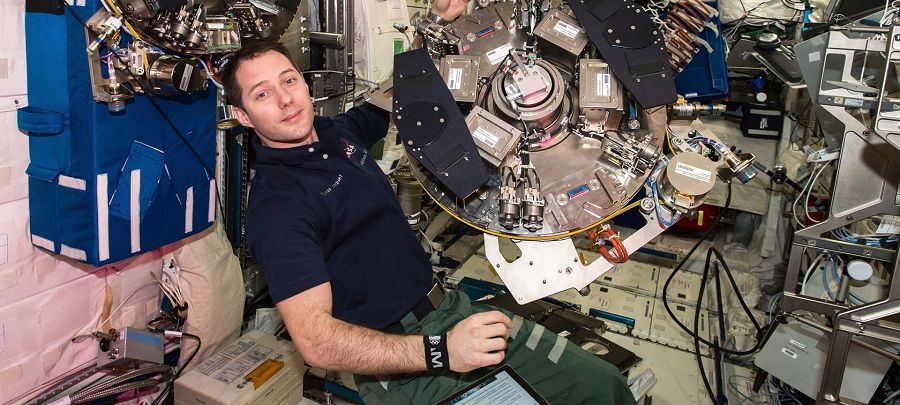THE SCIENTIFIC EXPERIENCES CONDUCTEDBY THOMAS PESQUET ON BOARD THE ISS |
|
Thomas Pesquet will carry out a hundred experiments in space As part of his “Alpha” mission, the French astronaut Thomas Pesquet will conduct a multitude of scientific experiments. In a six-month mission aboard the International Space Station (ISS). In all, the French astronaut will carry out around a hundred experiments, including 12 designed in Toulouse by the Center d'Aide au Développement des Activities in Microgravity and Space Operations (CADMOS). These experiments carried out in the European Colombus module of the station make it possible in particular to prepare longer space missions. He will conduct a hundred experiments. Thomas Pesquet's schedule will be loaded during his six months aboard the ISS. The French must carry out a hundred experiments. Twelve of them were designed by the Center for the Development of Microgravity Activities and Space Operations (Cadmos), which is located in Toulouse. These experiments will be carried out in the European Colombus module and aim, among other things, to prepare for long-term space missions. In the viewfinder: the red planet. “The ultimate goal, at least within our reach for the next hundred years, is Mars, because it is the twin sister of the Earth, because it has a very similar history, because it has had liquid water , " Thomas Pesquet told" Special Envoy Mini-brains Asked about an experience that is particularly close to his heart, Thomas Pesquet mentioned that involving "mini-brains, brain stem cells (...) in a Petri dish". The aim is to study the aging of these stem cells to better understand pathologies such as Alzheimer's disease. Dreams Study Thomas Pesquet will also work for a study, called "Dreams", which focuses on the sleep of space travelers. Rachel Debs, neurologist at the Toulouse University Hospital, explains that we will "be able to monitor the sleep which we know is disturbed in space because it will not have the day-night alternation over 24 hours". Indeed, on board the ISS, humans "see the sun rise and set 16 times a day, this is not at all the normal rhythm for the organism and therefore sleep is disturbed for the astronauts. ", Continues the specialist." We have a sleep of a shorter duration, more fragmented, and the paradoxical sleep is also in proportion less important than on earth. " A blob Thomas Pesquet will also be accompanied by a blob, an organism neither animal, nor plant, nor fungus. This blob will be cultured aboard the International Space Station, under the watchful eye of the French astronaut. Composed of a single cell, the "physarum polycephalum" is a living species apart. She has neither a mouth nor a brain, but moves, eats and has amazing learning abilities. Several specimens will be hosted on board the ISS. The goal is to see "if the blob behaves differently in space", and to study "the effects of microgravity and radiation on its evolution", specified the CNES. Edible packaging Scientific material is now packaged in bulky petroleum-based foams to send it into space. But for this mission, it will be transported in biodegradable and recyclable transport kits. Another particularity: part of the partitions will be edible! “It was a request from Thomas who told us: 'All these foams that we throw away, it's very nice but if we could do something with them and possibly eat them, it would not be worse. And we took him at his word, rejoices Alain Mayer, responsible for the “Eco pack” experience. In this container, we have three cookies, two gingerbread, natural taste and ginger taste, we have Genoa bread and madeleine. |
|
| Paul Emison for DayNewsWorld | |
 |
|




